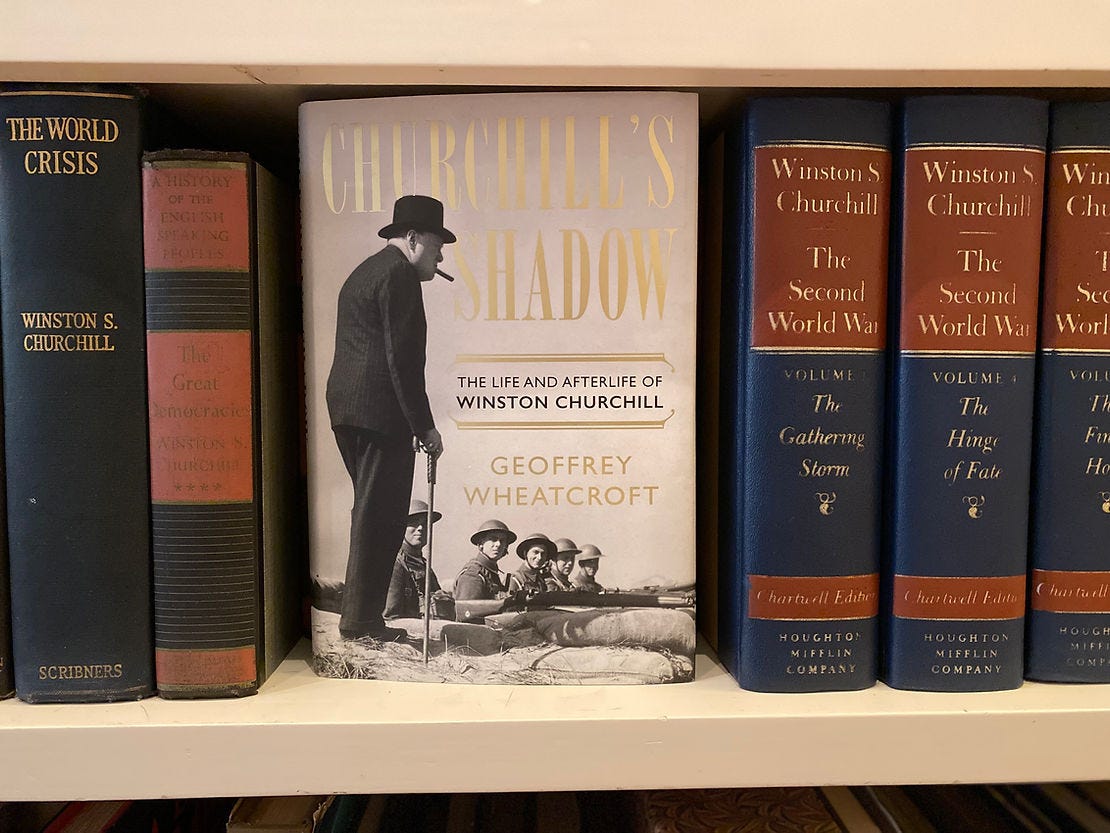Review of CHURCHILL'S SHADOW: The Life and Afterlife of Winston Churchill
The balloon is popped and I am much better off for it.
The life of Winston Churchill has been an obsession of mine from a childhood where I watched his state funeral holding the already well-worn special gold edition of LIFE magazine commemorating his life. I have grandiosely (and inaccurately) claimed to have read up to 10,000 pages of different types of Churchill biographies. I have too often and too glibly claimed that he is one of the great men of history. I am one of those boomer white males who – until now – could not get enough. My journalist son-in-law had had enough. Having grown up in India, he is well acquainted with the hagiography around both Churchill and the British Empire. The two are quite intertwined since the former wholly identified with the latter while the latter happily enshrined the former as its greatest spokesman. My son-in-law, as learned as anybody I know, grew up with the alternative narratives on both subjects. A year ago, Christmas, he had had enough and handed me this book with a wry smile daring me to face my cherished relationship with this man. It took me a year to read it. Meanwhile, I read Andrew Roberts 1000-page ode to Churchill and wept and swooned. It was as biased as it was magisterial. I loved it.
In his historiography at the end, Wheatcroft gives Roberts credit for writing such a splendid book but dismisses it as not only hagiography at its finest but part of the whole unsettling problem of not being honest about this iconic man and the price we have paid for this dishonesty. I must admit, Wheatcroft has a point … in fact, many points. A truly gifted journalist, a blunt and deeply informed gadfly, Wheatcroft succeeded in my removing Churchill from his place of honor. Wheatcroft comes from impeccable Tory credentials, so this is not a partisan or ideological fight. Rather, he is quite literally trying to set the record straight and if those stupid blurbs on Amazon are any indication, he has upset a lot of people. He made me angry throughout, but I felt I was looking at something near and dear for the first time. While the most disturbing elements of Wheatcroft’s revision would form a list too long for this format, I will address a couple. One element is that the winners write history argument is only too well and alive in Churchill’s case. A prodigious and talented writer, his interpretations of history are delicious milkshakes of carefully (and selfishly) curated facts. Churchill shaped in equal measure both our view of history and our view of him. Another element is that our “special relationship” with Britain might not be all that special and more the product of our infatuation with the man than the nation. His books sold best in America and made him a fortune. They are lined up on a shelf in my home. After reading this book, clearly their value has been as much scriptural as scholarly.
Wheatcroft goes too far in many places and the book is a tad bit long. He uses a sledgehammer to drive in a nail one too many times. But one good thing about having read so much about Churchill, is that I was able to employ my own version of a fact check as I read it. The facts remained intact. It was the interpretation that was altered. In the end, Wheatcroft must be read by any Churchill fan. Churchill, like his mythic “friend” FDR, is a Janus like figure. The same facts can be read in two entirely different ways. I feel closer to the man after reading this book though a little bit lonelier.
Churchill’s Shadow: The Life and Afterlife of Winston Churchill
Geoffrey Wheatcroft
2021 640 pages (including notes)


